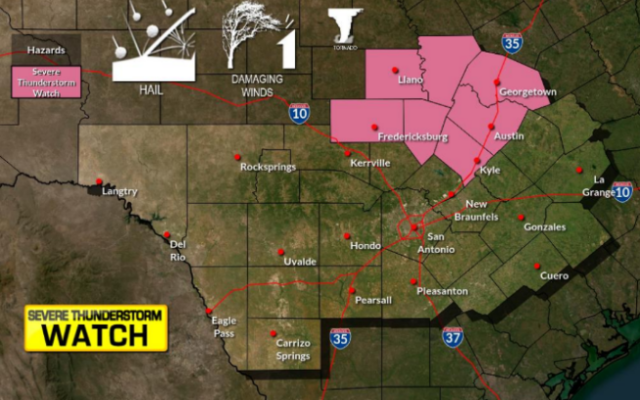Houston chief: Officers ignored training in fatal shooting
HOUSTON (AP) — Houston police officers initially seemed to be doing everything right during their April encounter with a man in the midst of a mental health crisis. But when the man picked up a stun gun, the officers killed him with a barrage of 21 bullets.
Officers can be heard on body-camera footage trying to de-escalate the situation by keeping their distance and reassuring Nicholas Chavez, a 27-year-old with a history of mental illness, that “we want to get you the medical help you need.” But Houston Police Chief Art Acevedo said for the things the officers initially did right, those were invalidated when they ignored their training by charging forward rather than retreating, even though the stun gun ultimately posed no threat to them.
Law enforcement and mental health experts said Friday that Chavez’s death highlights the problems with having officers be the only ones who respond in situations where someone is having a mental crisis. The experts say officers need better training to deal with such situations but that mental health professionals also need to be part of the team that handles such incidents.
“Continuing to make law enforcement the front line is problematic as we’ve seen over and over,” said Carolyn Wolf, an attorney from Lake Success, New York, who specializes in mental health issues.
Acevedo said four officers involved in Chavez’s fatal shooting on April 21 were fired for using unreasonable force.
During a news conference on Thursday and in termination letters later made public, Acevedo faulted the four officers for not following departmental rules by failing to retreat and take cover when Chavez picked up a stun gun. Acevedo said some of the officers went toward Chavez just before they opened fire on him, even though they weren’t in danger as they were out of the range of the stun gun and Chavez was hurt and incapacitated.
According to the termination letters, one of the fired officers was on the scene for less than two minutes before he shot Chavez.
Those fired were identified as: Officer Patrick Rubio, who had been with the department since May 2018; Officer Luis Alvarado, with the department since March 2019; Officer Omar Tapia, with the department since March 2019; and Sgt. Benjamin LeBlanc, with the department since October 2008.
The Houston Police Officers’ Union criticized the firings, saying the officers did everything they could to avoid killing Chavez.
“They acted the way they were trained,” said Doug Griffith, the union’s first vice president.
According to his termination letter, LeBlanc said at his disciplinary review hearing that “it was Mr. Chavez’s own actions that compelled the use of deadly force, ” When asked by the police department’s internal affairs division if he learned anything from the shooting, LeBlanc said, “You know, I really don’t think that there’s anything that could’ve changed the outcome of this …,” according to the letter.
The officers said they opened fire on Chavez because they were in fear of serious bodily injury or death from the stun gun he grabbed, according to their termination letters.
Kalfani Ture, an assistant professor of criminal justice at Quinnipiac University in Connecticut, said while the officers seemed to follow “textbook de-escalation tactics” for much of the incident, at the end they badly estimated the danger Chavez posed to them, they didn’t step back and take cover when he picked up the stun gun and didn’t consider that he was on the ground, injured and unable to get near them.
“De-escalation shouldn’t stop at some arbitrary point. That should always be the end goal of these types of encounters and all those officers had to do was to retreat,” said Ture, who is a former George police officer.
Ture said Chavez’s shooting — as well as the death of Daniel Prude in March after he had a hood placed over his head by police in Rochester, New York, following his release from a hospital for a mental health evaluation — shows the need for mental health professionals to also respond to such scenes along with officers.
Acevedo said every member of the police department gets Crisis Intervention Team or CIT training on how to deal with individuals in a mental crisis. The department also has a Mental Health Division that oversees the CIT training and helps respond to calls involving mental health issues.
Wolf said she believes officers do need better training, but mental health professionals need to be part of the response as well as they have a better understanding of how to talk and deal with a person in a mental health crisis.
“They were trying to be helpful and rational and reasonable,” Wolf said of the officers who interacted with Chavez. “But you can’t negotiate with someone who’s in the throes of a psychotic or manic or a related episode.”
Activists and community leaders in Houston said Chavez’s shooting is a call to action not only for better training of officers but also for improved access to mental health services.
“We really do need to stop funding police to buy military grade weapons and allocate millions of dollars in funding into other resources like mental health units in cities like Houston so we can avoid the situations from ever developing,” said Cesar Espinosa, who leads the Houston community group FIEL.
___
Follow Juan A. Lozano on Twitter: https://twitter.com/juanlozano70
You Might Also Like



